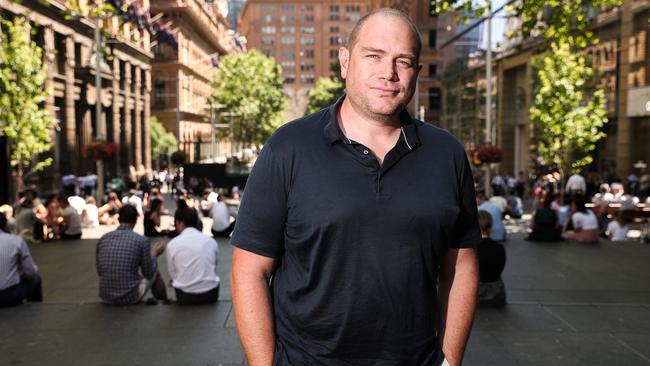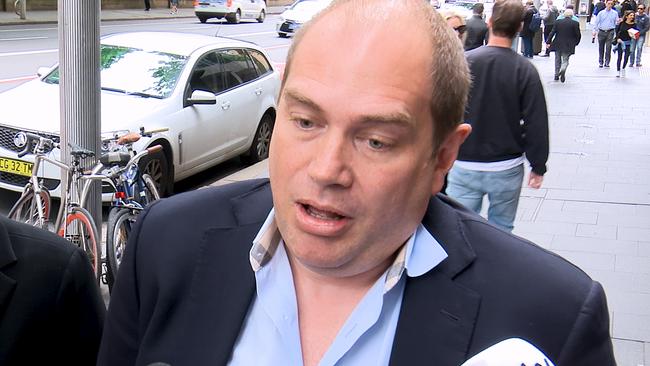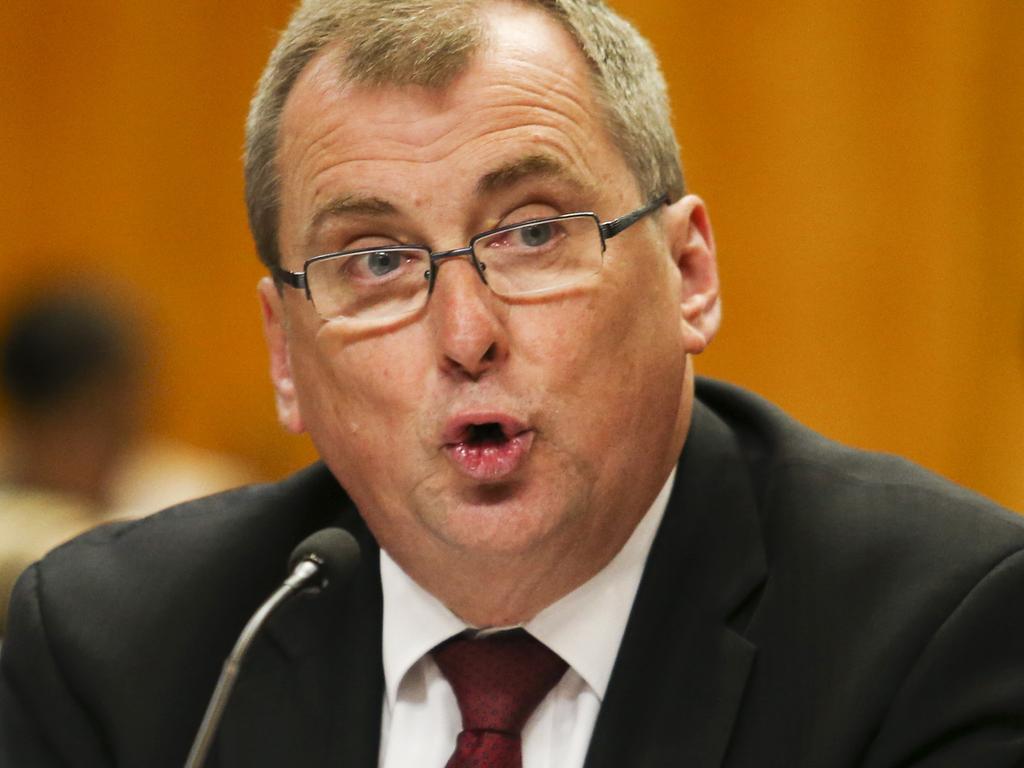Ex-NSW Labor Party boss Jamie Clements spills the beans on Labor’s power clique
Jamie Clements says Labor’s second-most powerful position is an ‘effectively unelected’ official.

The most powerful position within Labor, apart from the federal leader, is an “effectively unelected” official handpicked by about a dozen union bosses.
That’s the blunt assessment of a man who once held the role, former NSW Labor general secretary Jamie Clements. Mr Clements has blown the whistle on undemocratic and corrosive power dynamics within the party — reeling from an ICAC investigation into illegal donations and influence-peddling — and outlined a reform plan in his submission to an internal review of NSW Labor.
In the lengthy submission, provided to The Australian, Mr Clements says the general secretary is “one of the most powerful positions in Australia” and “second only to the federal leader” of the party.
Mr Clements, who resigned as general secretary in 2016 in controversial circumstances, writes that the state Labor leader is almost always chosen because they have the support of the general secretary, who exercises significant influence over MPs. Therefore, he argues, the general secretary is more “powerful” than the state parliamentary leader.

He acknowledges the position of general secretary is determined by a small group of union secretaries and possesses “vast power” because they are simultaneously the convener of the NSW Labor Right faction — known as Centre Unity — and the most senior official in Labor’s biggest branch.
“The position is effectively unelected. The general secretary is handpicked by a small group (10-12) of secretaries of unions aligned to the Right faction of NSW Labor,” Mr Clements writes.
“The role is guided and governed by tradition. Most of the rules that really determine how things are done in NSW Labor are unwritten: they have been handed down from generation to generation of Centre Unity operatives over the past 65-plus years.
“Both the annual conference and the administrative committee are tightly controlled by Centre Unity, and the ballots are a largely irrelevant (and a) fait accompli. Centre Unity’s grip on the annual conference and the administrative committee are key sources of the general secretary’s power.”
- READ MORE: Country Labor used as ‘donor tool’ | Labor finances in crisis | ICAC struggles to net big fish | ALP boss payout ‘obscene’
The “golden rule” of the NSW Labor Right faction, he writes, is that “you always back the general secretary”.
This ethos of tribal loyalty to one person is the glue that binds the faction together and is the bedrock of the general secretary’s unrivalled authority.
Unions aligned to the faction — including the Shop Distributive and Allied Employees Association, the Australian Workers Union, the Transport Workers Union, the Health Services Union and the Electrical Trades Union — operate by this “golden rule” or they remove the general secretary.
Mr Clements accepts that his submission calling for reform to the party will not be welcomed by many, but he says the party and the NSW Right faction needs to change and he is prepared to reveal how they operate.
“I understand the sources and extent of a general secretary’s power. I have used it, and had it used against me and my friends,” he writes.
“I understand, better than anyone, how the system works, why it needs to change and how it can be reformed.”
#EXCLUSIVE | Jamie Clements is at war with his party’s head office, attempting to force it to pay his ICAC legal bills.https://t.co/5rh5avQNbK
— The Australian (@australian) October 16, 2019
Mr Clements resigned as general secretary over sexual harassment allegations — which he denies — but was never charged by police.
He was subsequently convicted of unlawful use of enrolment data.
He recently gave evidence about illegal party donations from Chinese businessmen to an ongoing investigation by the NSW Independent Commission Against Corruption.
His membership of the party is currently suspended.
Submissions to the review by former attorney-general Michael Lavarch, which examines the role of the general secretary and the governance of the NSW party head office, close on Friday.
Mr Clements calls for reforms to reduce the power of the general secretary, improve governance in the party office and democratise the party conference, including:
• Having the general secretary and assistant general secretaries appointed by a three-quarters majority of the administrative committee’s ordinary members and the state parliamentary leader;
• Requiring party officials to sign an employment contract with clear KPIs and prohibit them from involvement in factional activity;
• Banning general secretaries from entering parliament for two years after finishing in the job;
• Abolishing one of the three vice-presidents and requiring a three-quarters majority of office-holders for all decisions;
• Appointing a governance director with the support of three-quarters of the administrative committee who is not a party member;
• Reducing the size of the administrative committee and making members undergo training in governance and fiduciary duties;
• Allowing rank-and-file members to have a direct vote in half of all upper-house preselections, with union delegates to conference electing the other half;
• Abolishing “appointed” delegates to party conferences and enforcing a strict 50-50 split between elected rank-and-file delegates and union delegates.





To join the conversation, please log in. Don't have an account? Register
Join the conversation, you are commenting as Logout